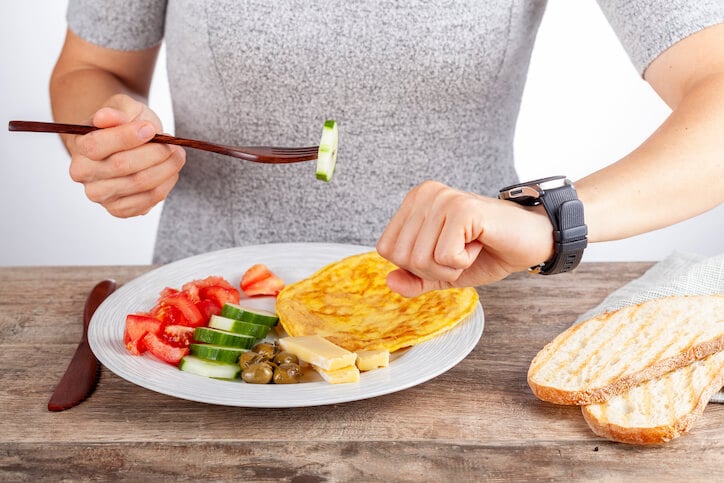Can Intermittent Fasting Raise Blood Sugar? Debunking the Myths
Are you considering trying intermittent fasting to improve your health or lose weight? As the name implies, intermittent fasting is a structured...

Sugar is a very common ingredient found in many of the foods we eat, from fresh-baked chocolate chip cookies to the ketchup you dip your French fries in. While sugar makes many foods more enjoyable, it has been the subject of much debate on how it can affect our health.
Some argue that sugar is an essential part of our diet for the energy it provides, while others argue that sugar is harmful and should be avoided. Which one is it? Is sugar good for you or not? Let's take a look.

Let's first note that our bodies need one type of sugar: glucose. Your brain uses glucose as its number one source of food. Glucose is essential for fueling the entire body. You get glucose from the breaking down of food through carbohydrates, proteins and fats.
There are two main types of sugar. There is naturally occurring sugar, which is found in fruits, vegetables and milk, and added sugar, which is used in foods during processing. The main concern arises with sugars that are added to our food.
Consuming whole foods with naturally occurring sugars is beneficial because you are also getting other essential nutrients such as minerals, antioxidants, fiber, protein and calcium. Our bodies digest these sugars slowly, giving us a steady flow of energy. Glucose from naturally occurring sugars is all our bodies need.
A diet consisting of high levels of whole foods has been shown to help reduce chronic diseases such as diabetes and heart disease. It’s the consumption of added sugars that is of particular concern when it comes to your health. While glucose is the top fuel source for our brain, it does not need to be added to our food for our bodies to reap its benefits.
While sugar isn’t inherently bad for your health, consuming too much added sugar can indeed have a negative impact. Consuming too many foods that do not contain naturally occurring sugar but instead have sugar added has been linked to obesity, heart disease and Type-2 diabetes.
Many foods contain added sugars, including:
A recent study shows the consumption of “free sugars,” another term used to describe sugar that has been added to food, is linked to an increased risk of cardiovascular disease, heart disease or stroke.
The American Heart Association suggests women consume less than six percent of their daily caloric intake from added sugars, which is equivalent to six teaspoons per day, while men should consume no more than nine teaspoons per day. To put this into perspective, Raisin Bran cereal contains more than four teaspoons of added sugar per bowl.
Sugar is considered a simple carbohydrate, which is easily digested and can cause unhealthy spikes in blood sugar levels. This can lead to weight gain and an increased craving for more sugary carbs due to the insulin surge triggered by their consumption.
Chronic diseases and weight gain are not the only problems you could face from consuming too much added sugar. Your dental health may also be at high risk. When too much sugar is consumed, it combines with the bacteria in your mouth and forms acids that can erode your tooth enamel. This can then lead to cavities and tooth decay.
Well, the answer is complicated.
Naturally occurring sugar from fruits and vegetables can be part of a healthy, well-balanced diet. But consuming too much added sugar can lead to a variety of health problems and should be avoided.

The key is to know the source of the sugar you are consuming. Foods high in added sugar and low in nutrients should be consumed sparingly, and foods with natural sugars and other nutrients should be the bulk of your daily calories.
A simple and effective habit you can get into is reading your nutrition labels. Packaged foods are required to list ingredients in descending weight. If sugar is one of the first ingredients on the list, the food product is likely too high in added sugars.
According to Mayo Clinic, follow these recommendations to reduce added sugars in your diet:

Liberty HealthShare believes in the importance of your health. We want to support you in your health journey by offering affordable ways for you to pay for your medical needs in a like-minded community. We offer every member access to tools to help you navigate to the best healthcare through transparency and the opportunity to save money through comparison shopping.
Liberty HealthShare is neither a health insurance company nor do we function as one. We are a Christian, membership-based, non-profit organization that helps facilitate medical cost sharing among our members.
You can contact us to learn more about how Christian-based medical cost sharing can help you save on your healthcare costs.

Are you considering trying intermittent fasting to improve your health or lose weight? As the name implies, intermittent fasting is a structured...

It’s no secret that making good lifestyle choices will result in a healthier life. But a major component of a healthy lifestyle is your diet. And the...

According to the Centers for Disease Control and Prevention (CDC), adults with diabetes are nearly twice as likely as non-diabetics to die from heart...